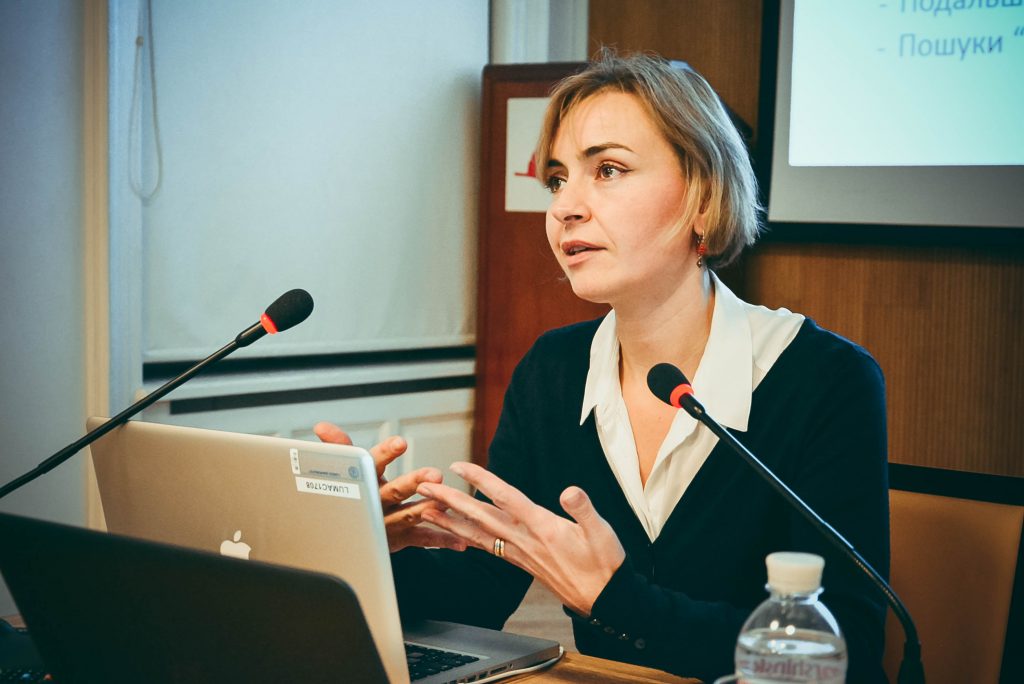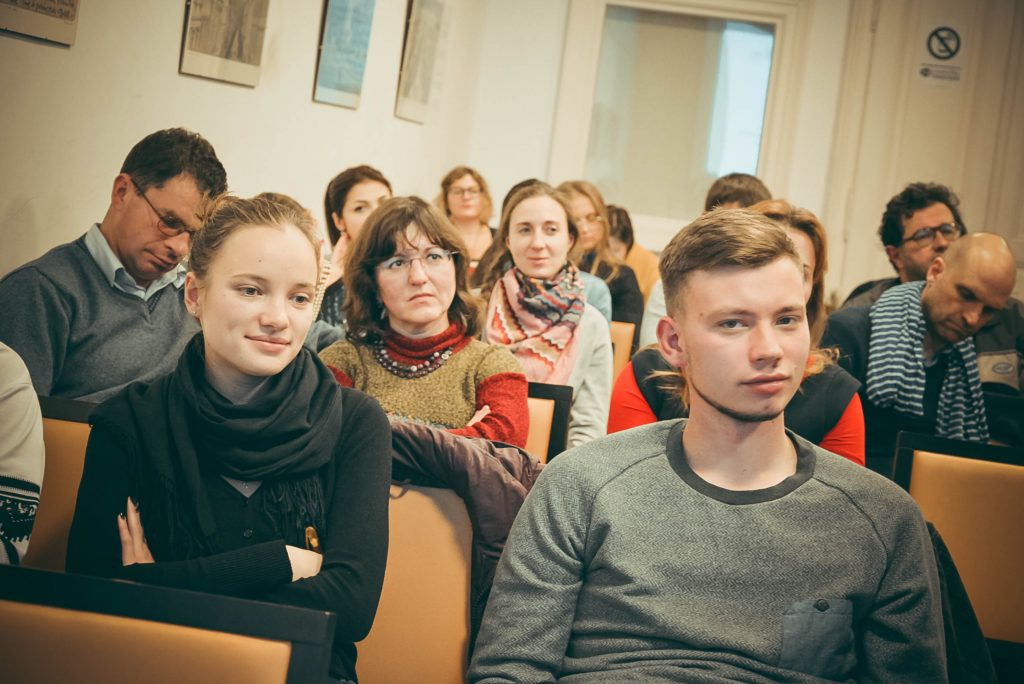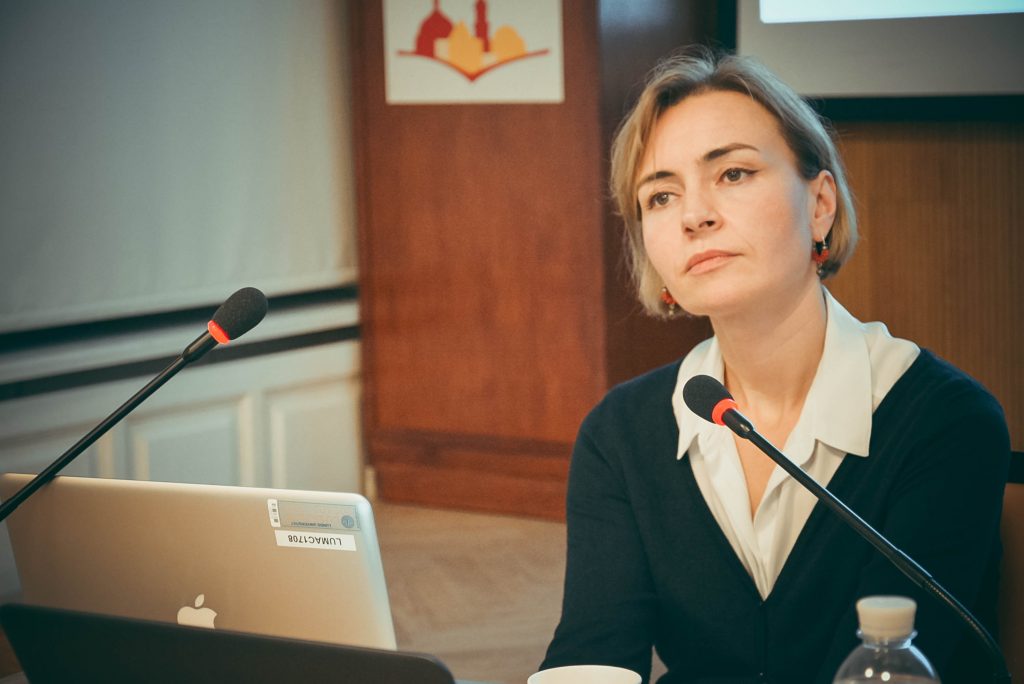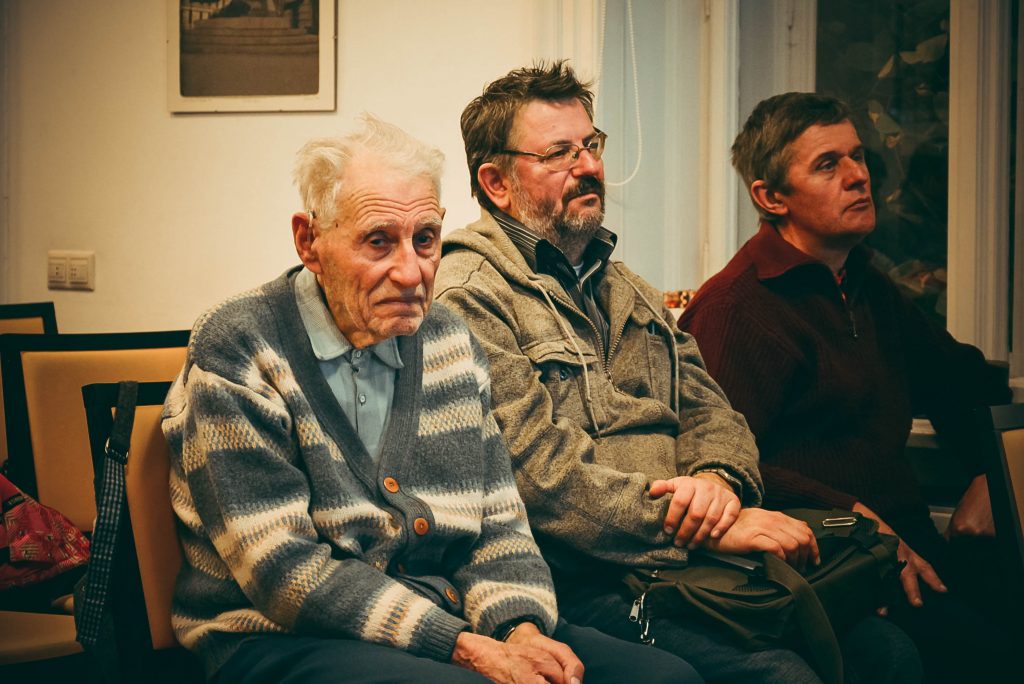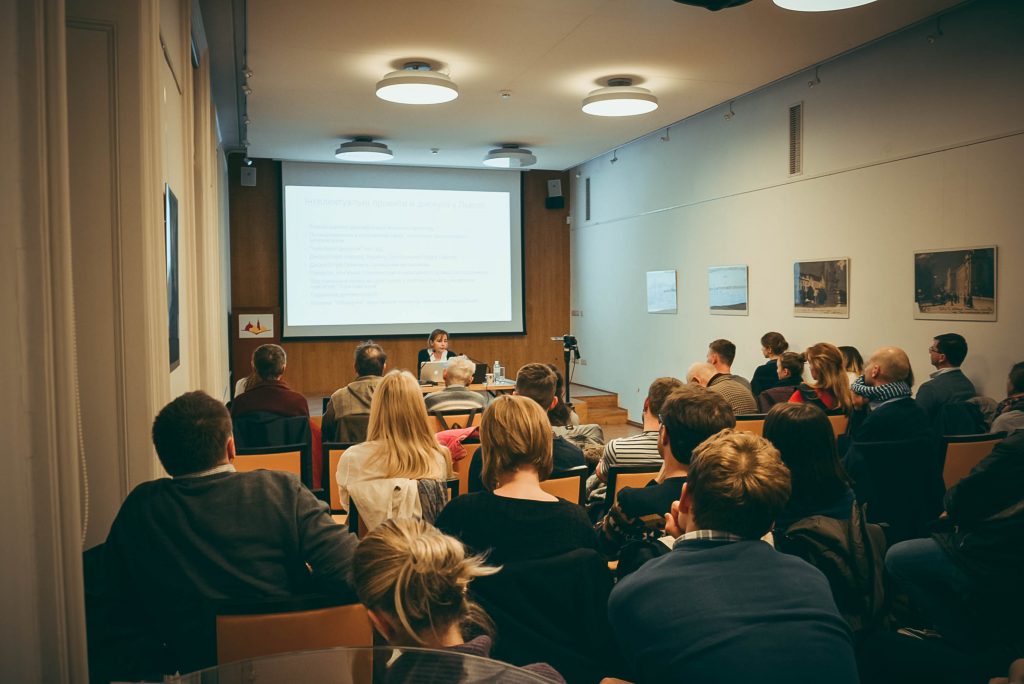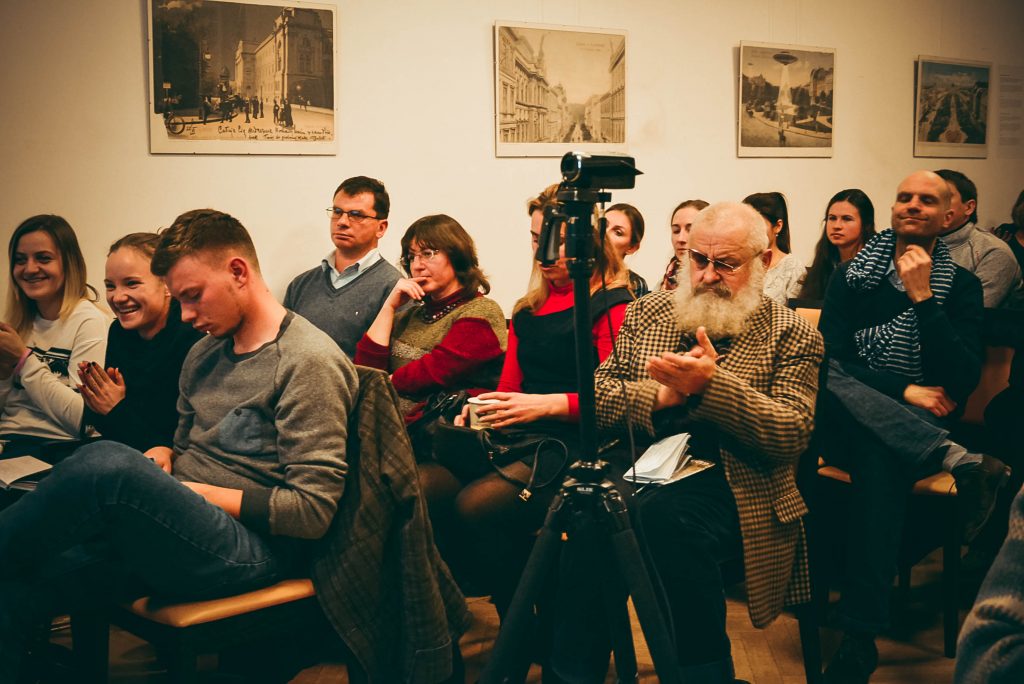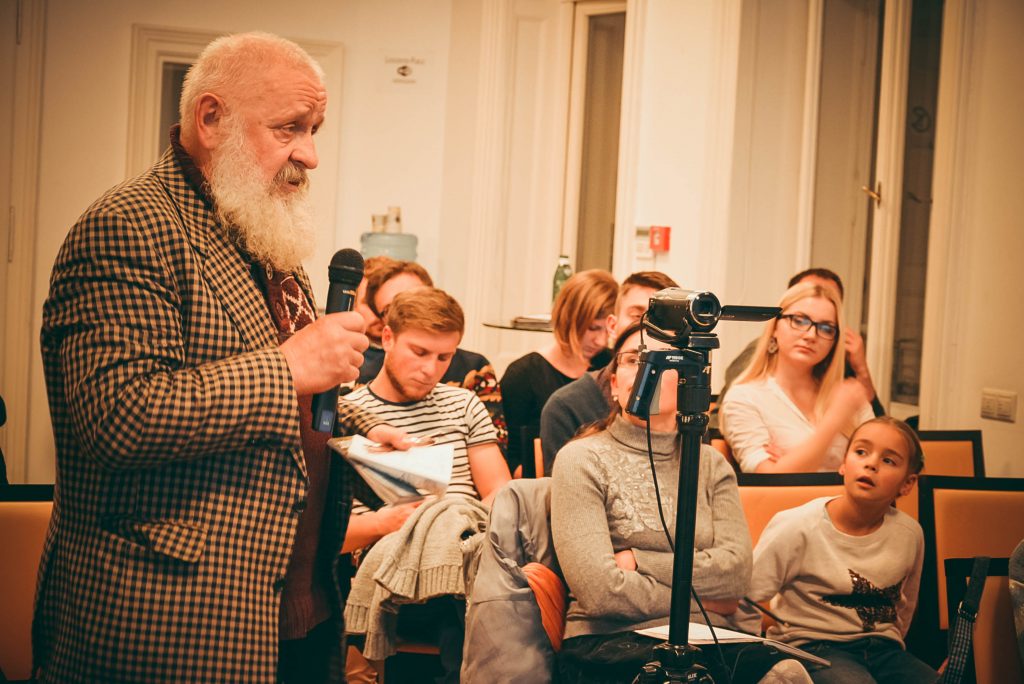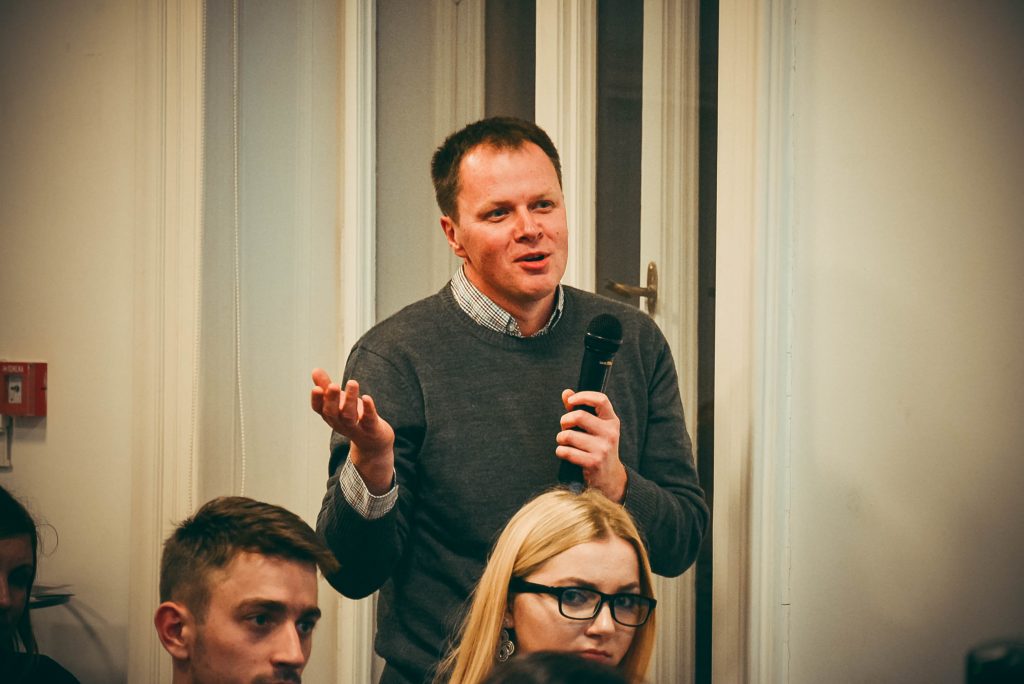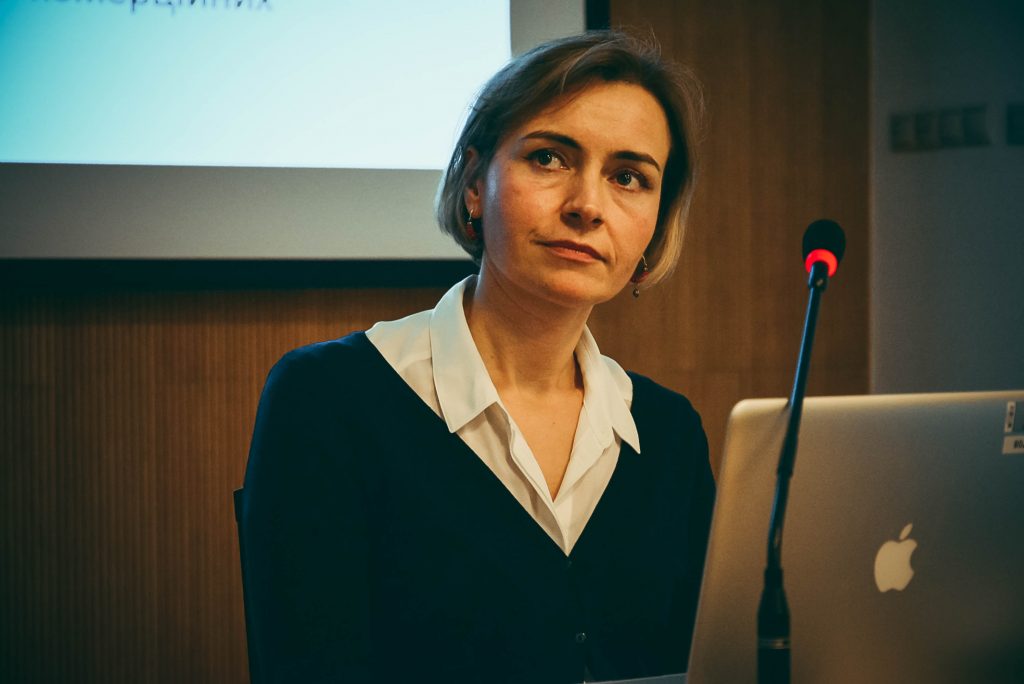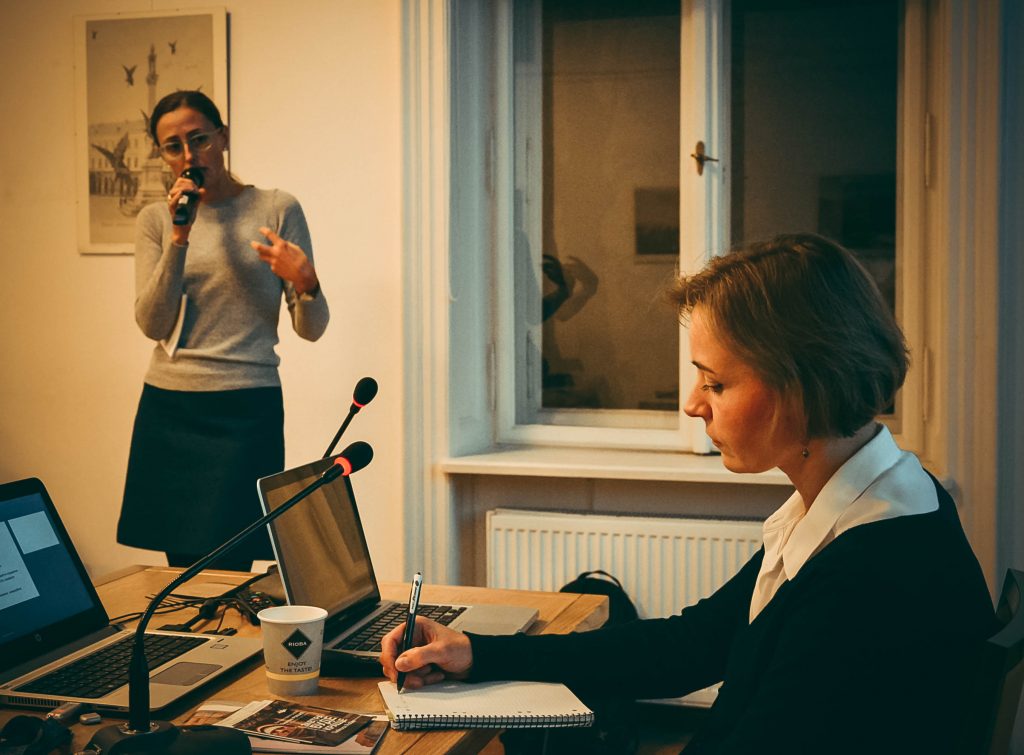Intelligentsia in Lviv after 1991: Tentative Cultural Anthropological Analysis
Eleonora Narvselius
Center for European Studies at Lund University, Sweden20.10. 2016
Center for Urban History, Lviv
Collapse of the Soviet Communist system was followed by large scale transformation of political, social, and economic fields. Moreover, it had crucially changed visions of social hierarchies and cultural map. In particular, the existence of intelligentsia, a category so much burdened with the "outdated" values and ideology, was undermined.
The presentation by Eleonora Narvselius explained how the concept was being reconsidered in Lviv where it had acquired different meanings for a long time, depending on the context and needs of its application. It will tell about the historical background and the theoretical problems detected by cultural and anthropological analysis.
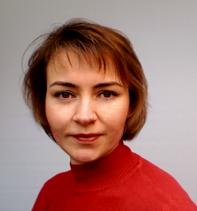
Eleonora Narvselius
is an ethnologist of the Center for European Studies at Lund University (Sweden). She is author of the book “Ukrainian Intelligentsia in Post-Soviet L’viv: Narratives, Identity and Power” (New York – Toronto – Plymouth, UK: Lexington Books, 2012). Research interests include: the study of elites, problems of collective memory in East Central Europe, study of cultural heritage and commercialization of history. Recent publications include: Articles “Volyn 1943-1944 and Prewar Polishness in Intellectual Polemics of Western Ukraine” in online journal “Ukraina moderna’ and “Lviv and Chernivtsi: Two Memory Cultures at the Western Ukrainian Borderland” in the journal East/West: Journal of Ukrainian Studies, vol.I, no. 1, 2014 (co-authored with Nicklas Bernsand).
The event is part of the lectures and discussions program "Transformations in East Europe: 27 Years Later".

